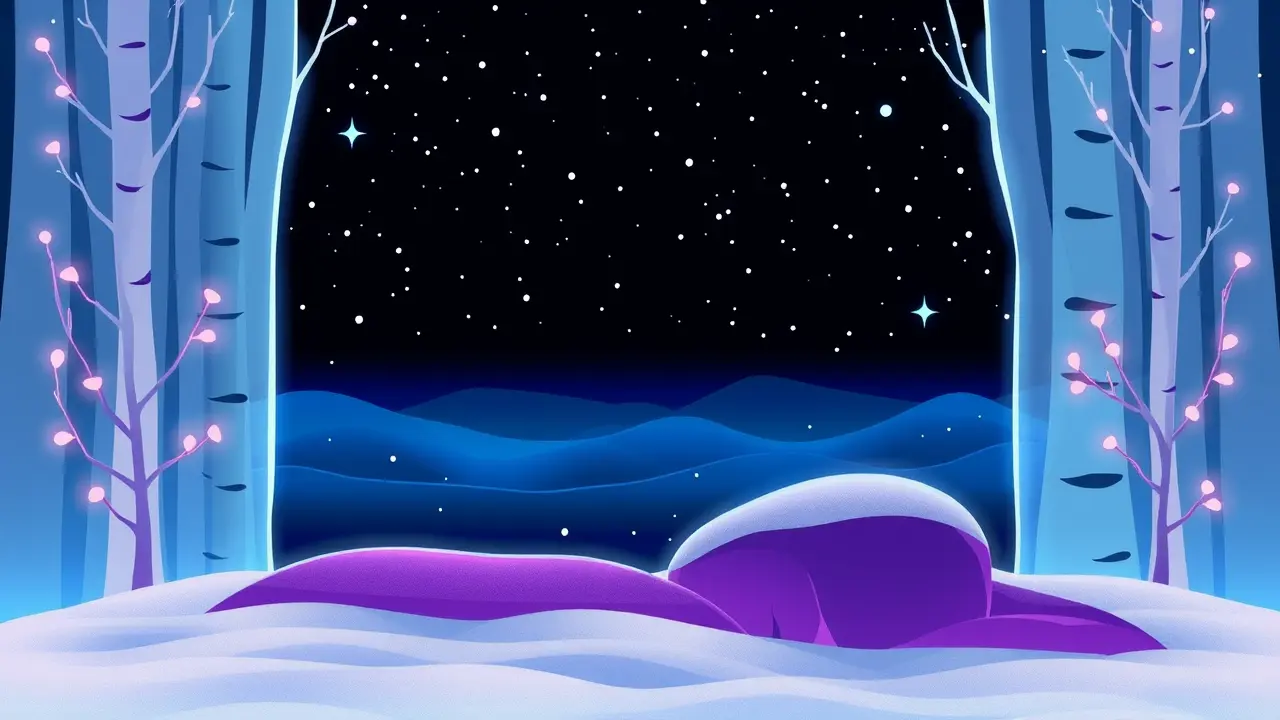
Scienceneuroscience
Winter Libido Slump is Seasonal, Not Personal.
LA
Laura Bennett
4 hours ago7 min read
As the days shorten and the chill sets in, a quiet, shared anxiety begins to surface in conversations that are more intimate than those about the weather, a phenomenon often glossed over with the trendy term 'cuffing season' but one that speaks to a deeper, more universal human experience. This isn't about finding a temporary partner for the cold months; it's about the internal, often unspoken, concern many feel as their own libido seems to retreat into hibernation, a shift that can feel intensely personal and isolating, as if a fundamental part of one's identity is flickering.I've spoken to dozens of people—from young professionals in bustling cities to couples in quiet suburbs—and the narrative is strikingly consistent: a drop in energy, a diminished interest in sex, and a creeping worry that something is wrong with their relationship or their own body. But what if we're looking at this all wrong? What if this isn't a personal failing but a biological echo, a vestige of our ancestral past where winter was a time for conservation, not procreation? The science points compellingly to this being a seasonal, not a personal, event.Our bodies are exquisitely tuned to the sun; the reduced daylight directly impacts our production of melatonin and serotonin, the very chemical messengers that govern our sleep, mood, and, yes, our sexual drive. It’s a physiological chain reaction: less light leads to a hormonal ebb that naturally lowers our energy reserves, making the prospect of a cozy night in under a blanket far more appealing than a passionate encounter.This isn't a modern affliction of a distracted, screen-dominated society; it's a primal rhythm. Consider the historical context: for millennia, winter was a time of scarcity and survival, where expending precious energy on non-essential activities could be a literal liability.Our bodies haven't yet caught up to the reality of central heating and year-round food abundance; they are still operating on an ancient calendar that prioritizes rest and preservation during the lean months. To pathologize this natural downturn is to fight against our own biology, a battle that inevitably leads to frustration and self-doubt.The real issue, then, isn't the libido slump itself, but the meaning we attach to it. In a culture that often equates sexual frequency with relationship health and personal vitality, this seasonal dip can be misinterpreted as a sign of a failing partnership or a loss of self.This is where the personal narrative becomes fraught. I recall a conversation with a woman named Sarah, who described the winter months as a period of 'silent tension' in her marriage, where her decreased desire was met with her husband's confusion, creating a cycle of pressure and withdrawal that felt far more damaging than the initial lack of libido.It was only when they reframed it as a 'seasonal challenge' they could face together, like a winter storm, that the dynamic shifted. They focused on non-sexual intimacy—long conversations, shared baths, collaborative cooking—and found that connection, in its many forms, was the true antidote to the seasonal distance.This isn't to say we are powerless against the winter blues; we can work with our biology, not against it. Maximizing exposure to natural light, even on cloudy days, can help regulate our circadian rhythms.Prioritizing sleep, nutrition, and moderate exercise are not just clichés of wellness but tangible tools to support our hormonal balance. And perhaps most importantly, we can practice self-compassion and open communication, releasing the expectation that our desire should remain at a constant, summer-like peak throughout the year. By understanding this winter libido slump for what it is—a widespread, biologically-rooted seasonal shift—we can remove the stigma, alleviate the personal guilt, and navigate these colder months with greater grace, patience, and a deeper understanding of our own beautifully complex, seasonally-influenced human nature.
#featured
#libido
#seasonal changes
#winter
#health
#relationships
#energy levels
Stay Informed. Act Smarter.
Get weekly highlights, major headlines, and expert insights — then put your knowledge to work in our live prediction markets.
Related News
© 2025 Outpoll Service LTD. All rights reserved.
